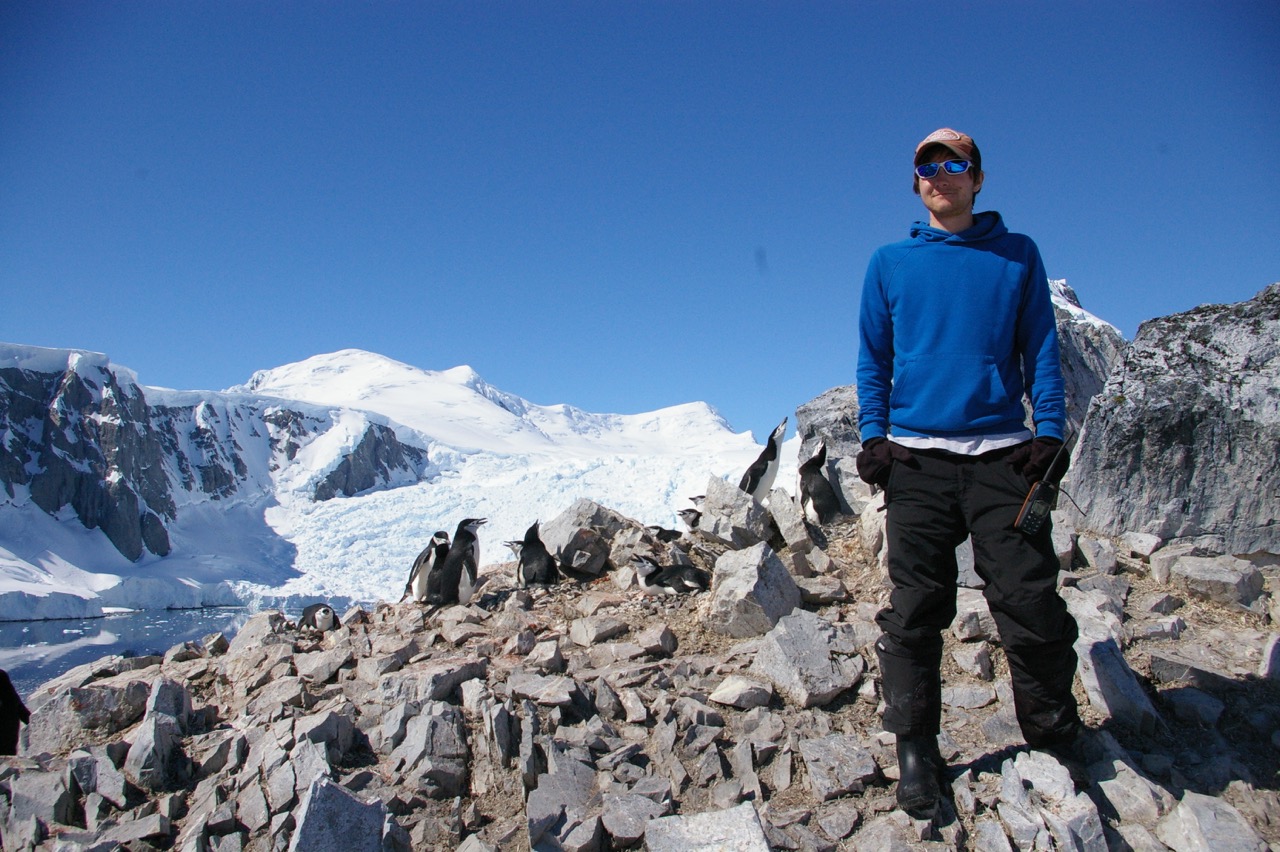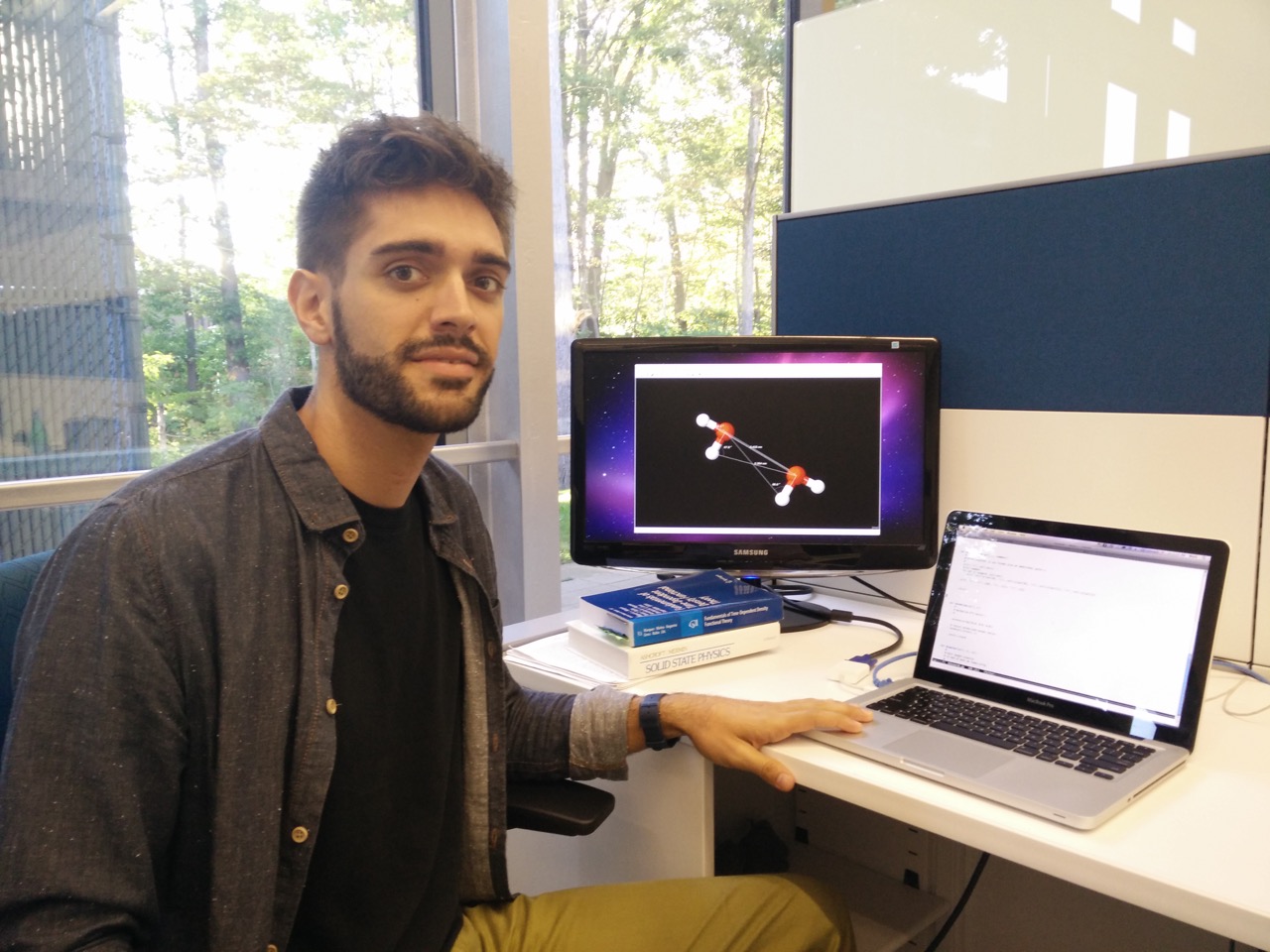McDowall and Soto win 2015 IACS Junior Researcher Awards
 |
|
IACS 2015 Jr. Researcher Award |
Most people don’t associate computing with nature. Yet, as technology advances and new environmental problems arise, ecologists are increasingly turning to computing as a means of better understanding the natural world around us. One area of particular interest is animal species’ geographic distribution in relation to changes in the environment. This area of research is called spatiotemporal dynamics, and it has taken Philip McDowall, one of the winners of the Institute for Advanced Computational Science (IACS) 2015 Junior Researcher Award, all the way to Antarctica.
“The area I work in, the Western Antarctic Peninsula, is one of the fastest-warming places on Earth,” said McDowall, who specifically studies the distribution of three species of Antarctic penguins. “Ecologists are often interested in the relationship between environmental factors and the spatial distribution of a species or population. Understanding these associations can be vital for predicting species ranges, predicting how a species will react to climate/habitat change, and developing effective management or conservation strategies.”
McDowall, from the Department of Ecology and Evolution, studies with Associate Professor Heather Lynch. For him, receiving an IACS Junior Researcher Award means not only the opportunity to use and access new technology with which he carries out his research, but also the ability to travel and network with other researchers in his field of ecology and evolution. “I'm really looking forward to having more opportunities to talk to people using computational science in other disciplines. I think there are a lot of people working on similar questions in very different systems, and there's so much to be learned from the ways other people have dealt with computationally intensive problems, so it's great to be supported by such an interdisciplinary group as the IACS.”
 |
| IACS 2015 Jr. Researcher Award winner Adrian Soto |
The research presented by applicants was of such high caliber this year that IACS gave a second award to Adrián Soto, from the Department of Physics & Astronomy, who studies with Associate Professor Marivi Fernández-Serra. Soto applies computational methods to condensed matter physics, or the science of how liquids and solids are composed on the molecular level. Specifically, Soto is interested in understanding how the interactions between water molecules cause liquid water to form—for applications like battery design—and also how liquid and solid semiconducting materials—such as silicon—can be used to detect dark matter in the universe. Being able to study diverse subjects like water, the most abundant and studied molecule on earth, and dark matter, one of the biggest mysteries of science, said Soto, proves that the potential applications for computational science are virtually endless.
“It feels great to get an official recognition to [my] hard work,” said Soto. “This award is going to allow me to attend conferences and schools, where I will explain my research and learn from others. I know of many people who met their next employer at a science conference. Why couldn't that happen to me?”
The awards are for advanced PhD students who use computational science in their research with IACS faculty. It gives winners’ combined incomes of up to $34,000 for up to three years and also provides winners with $4,000 per year for travel to PhD-related conferences and events.
These awards and the formation of IACS were made possible by an anonymous donation of $10M matched by another $10M from the Simons Foundation. The Institute provides resources for and engages with faculty, students and postdocs from a wide variety of academic backgrounds, all who have research interests that involve the use of high-performance and data-intensive computing. To find out more about IACS and the schedule of events, see http://iacs.stonybrook.edu/.